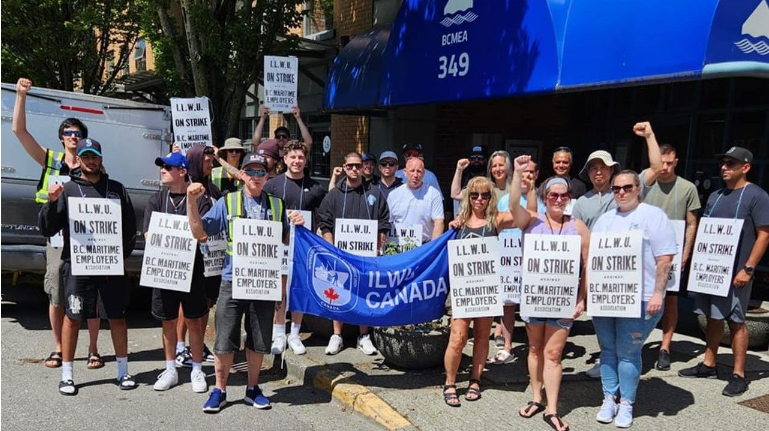A strike by dockworkers in British Columbia, Canada continued into a third day on Monday, with impacts that could result in potential cost increases for businesses relying on the ports.
Impacts are being felt mainly at the Port of Vancouver and Port of Prince Rupert. The strike could have a domino effect on the automobile, container, break bulk, and project cargo business sectors.
“The strike could have a significant impact on the ports of Vancouver and Prince Rupert, which are crucial gateways for Canada’s foreign trade, especially with Asia,” said Christian Roeloffs, Co-founder and CEO of Container xChange. “These ports handle a substantial portion of Canada’s imports and exports. The disruption caused by the strike can lead to delays, congestion, and inefficiencies in the movement of cargo, affecting various industries and businesses that rely on the smooth functioning of the supply chain.”
The British Columbia Maritime Employers Association (BCMEA), representing 49 private sector waterfront employers and operators in British Columbia, was notified of the strike last week by the International Longshore and Warehouse Union (ILWU) Canada as collective bargaining negotiations between the two sides have reached an impasse.
The strike, which started July 1, comes on the heels of an expired ILWU Canada Longshore Local collective agreement with the BCMEA. The two sides have been unable to reach an agreement since the expiration of the previous agreements on March 31, 2023.
The negotiations involve two coast wide collective agreements, one with the Longshore Locals and another with Local 514 Ship & Dock Foremen, representing over 7,400 longshore workers and foremen at Canada’s West Coast ports.
Talks between the two parties temporarily paused on Sunday evening, and were set to resume on Monday, ILWU Canada said in a statement.
The strike is already impacting vessel transit and dwell times at ports in Vancouver and Prince Rupert, where collectively more than a 200 vessels are in port and dozens more are on the way.
“Drawing from past experiences, it is essential for both ILWU Canada and BCMEA to engage in constructive dialogue, demonstrating a willingness to address the main issues at hand. Previous labor disputes within the maritime industry have demonstrated that a collaborative approach can lead to mutually beneficial solutions and a return to normal operations,” said Roeloffs.
Copyright Ships & Ports Ltd. Permission to use quotations from this article is granted subject to appropriate credit given to www.shipsandports.com.ng as the source.

